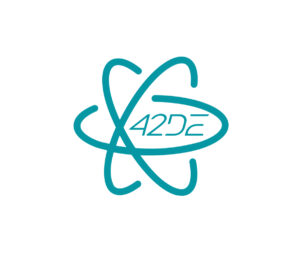
We build a Resilient and Thriving
Quantum Economy!
QBN is the global industry network and consultancy for quantum technologies promoting commercialization and collaboration, shaping policies and driving industry adoption.
Founded in 2020, QBN, represents over 100 international members across the entire value chain, incl. world-leading startups, enterprises, RTOs, investors, and governmental organisations, developing and using quantum technologies, including quantum computing, quantum sensing, quantum communication, and quantum cybersecurity.
QBN builds the industrial quantum powerhouse, driving national security, technological sovereignty, economic growth and a sustainable future.
QBN is the global industry network and consultancy for quantum technologies promoting commercialization and collaboration, shaping policies and driving industry adoption.
Founded in 2020, QBN, represents over 100 international members across the entire value chain, incl. world-leading startups, enterprises, RTOs, investors, and governmental organisations, developing and using quantum technologies, including quantum computing, quantum sensing, quantum communication, and quantum cybersecurity.
QBN builds the industrial quantum powerhouse, driving national security, technological sovereignty, economic growth and a sustainable future.
QBN is the global industry network and consultancy for quantum technologies promoting commercialization and collaboration, shaping policies and driving industry adoption.
Founded in 2020, QBN, represents over 100 international members across the entire value chain, incl. world-leading startups, enterprises, RTOs, investors, and governmental organisations, developing and using quantum technologies, including quantum computing, quantum sensing, quantum communication, and quantum cybersecurity.
QBN builds the industrial quantum powerhouse, driving national security, technological sovereignty, economic growth and a sustainable future.
Quantum Technologies have the potential to transform various industries like healthcare, finance and materials science, and the way we live. By accelerating drug discovery, enhancing cybersecurity, and creating new materials, these technologies enable us to kick-start a new economic era.
Together we can drive the adoption of quantum technologies and turn quantum into a global industrial powerhouse paving the way for a healthy, united, sovereign and secure future.
Quantum Technologies have the potential to transform various industries like healthcare, finance and materials science, and the way we live. By accelerating drug discovery, enhancing cybersecurity, and creating new materials, these technologies enable us to kick-start a new economic era.
Together we can drive the adoption of quantum technologies and turn quantum into a global industrial powerhouse paving the way for a healthy, united, sovereign and secure future.
QBN gathers 100+ members from R&D to providers to industry end-users; corporates, SMEs and startups to RTOs and universities to government organizations and investors that are working in the field of quantum technologies including quantum computing, quantum communication and quantum sensing and their entire value chains.
QBN gathers 100+ members from R&D to providers to industry end-users; corporates, SMEs and startups to RTOs and universities to government organizations and investors that are working in the field of quantum technologies including quantum computing, quantum communication and quantum sensing and their entire value chains.
Join the leading quantum network and accelerate your business!
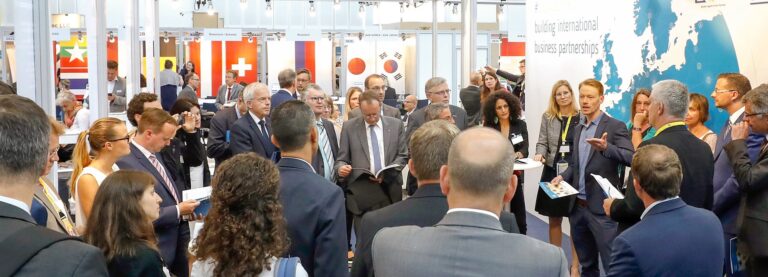
Create a supportive and flourishing environment for your company and the quantum community by joining our public policy and community activities.
Create a supportive and flourishing environment for your company and the quantum community by joining our and community and lobbying activities.
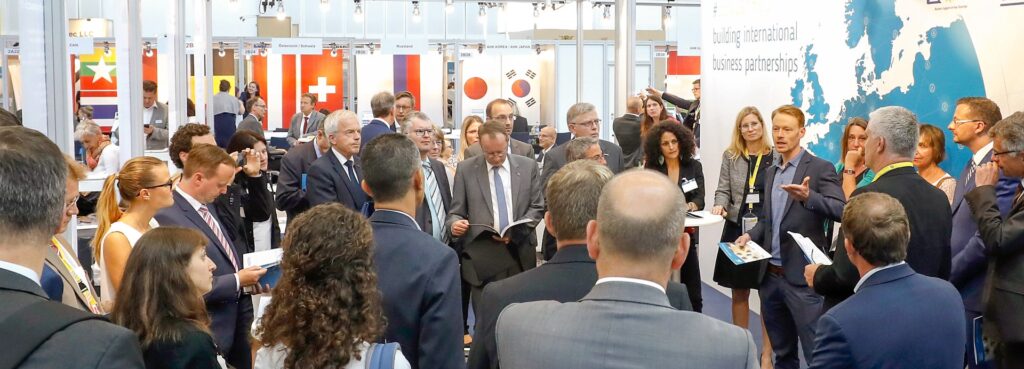
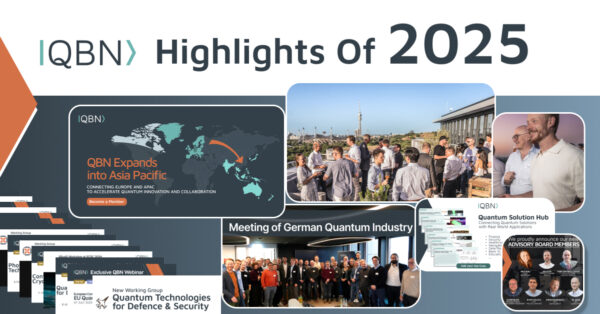
Munich, 16 December 2025 – 2025 saw landmark developments across geopolitical, industrial, and research arenas, reflecting the growing role of quantum in modern economies and security landscapes. The awarding of the 2025 Nobel Prize in Physics for the discovery of macroscopic quantum effects underscores the foundational research that continues to drive the emerging quantum economy. As we celebrate the International Year of Quantum Technologies, QBN reflects on a year of outstanding achievements, including key member milestones, global policy engagement, and successful initiatives that are accelerating the integration and adoption of quantum technologies across industries worldwide – here is an excerpt of a successful year. Strategic Policy and International Engagement At the European level, the European Commission published the updated EU Quantum Strategy, defining priorities for scalable infrastructures, industrial adoption, and workforce development, reflecting extensive stakeholder input. In Germany, the High-Tech Agenda Deutschland outlined multi-billion-euro investments in quantum and other deep-tech sectors, while the landmark Meeting of the German Quantum Industry brought together key stakeholders to ensure Germany’s and Europe’s strengths are fully leveraged and aligned with domestic commercial and societal impact. In parallel, the conclusion of the SQuaD project marked an important step in strengthening Germany’s and Europe’s quantum communication landscape, with QBN leading activities on innovation promotion, technology transfer, and ecosystem building, supporting commercialisation and long-term collaboration across the German and European quantum communication ecosystem. Amid rising geopolitical tensions, NATO’s Rapid Action Adoption Plan placed quantum technologies at the centre of modern defence capabilities, encompassing secure communications, advanced sensing, and computing applications. QBN contributed through its Defence White Paper and established a dedicated Defence & Security Working Group to foster dialogue and concrete actions on adoption of quantum technologies for dual-use applications. Corporate Developments, Strategic Alliances, and Member Support In 2025, QBN expanded its global footprint and business impact. The Asia-Pacific Chapter was launched and a new QBN Advisory Board was established. Strategic partnerships were formed, supporting cross-regional collaboration and expanding activities within Europe and into the Middle East and Asia-Pacific. QBN introduced a series of intelligence tools, including the Quantum Solution Hub, a platform providing enterprises with direct access to applied quantum solutions that tackle real challenges in industries, research, and education. During World of Quantum 2025 in Munich, QBN hosted a joint pavilion showcasing 11 of its members, serving as a collaborative hub for industry, research, and policy stakeholders and facilitating strategic discussions and networking. In addition, QBN organized a memorable VIP Networking Reception celebrating five years of QBN and a successful quantum week in Munich, bringing together members, policymakers, and industry leaders for an evening of engagement and dialogue. These initiatives strengthened the network’s capacity to foster partnerships, advance industry collaboration, and accelerate the integration of quantum technologies across Europe and the Asia-Pacific region. Impactful Member Milestones QBN members achieved notable breakthroughs across the ecosystem. Among the highlights are Qilimanjaro Quantum Tech’s inauguration of the world’s first multimodal Quantum Data Center in Barcelona, Quantinuum’s $600 million capital raise to advance fault-tolerant computing and global collaborations, and IQM Quantum Computers’ $320 million Series B funding to scale production and develop error-corrected quantum systems. SandboxAQ demonstrated the practical deployment of its MagNav quantum sensing system, providing resilient, GPS-independent navigation for aircraft and showcasing quantum technologies ready for real-world operational environments. Aquark Technologies completed a world-first at-sea trial of its cold atom-based AQlock atomic clock aboard the Royal Navy’s HMS Pursuer, confirming stable, high-precision operation under challenging maritime conditions. Quantum Optics Jena’s entangled photon-pair source achieved independend certification by Italy’s National Institute of Metrological Research (INRIM) confirming high-quality, dual-wavelength entangled photon generation. Collectively, these milestones signal not only advancing technical performance across quantum computing, quantum sensing and quantum communication, but also a growing emphasis on commercialisation, i.e. deployment readiness, certification, and trust, reflecting increased recognition by investors, industry, and public-sector stakeholders of quantum technologies as viable, infrastructure-grade solutions rather than purely experimental systems. Outlook The combination of strategic policy developments, corporate and investor initiatives, and member achievements throughout 2025 illustrates a year of sustained momentum for the QBN Community. As the UN International Year of Quantum Technologies 2025 comes to a close, these accomplishments underscore the growing role of quantum solutions in industrial, scientific, and defence applications. We sincerely thank all of our members and partners for their expertise, collaboration, and commitment, whose contributions have made this year a remarkable success for quantum industry. Looking ahead, QBN will continue fostering collaboration across governments, militaries, investors, industry, and research institutions, supporting the technological advancement and industry adoption of quantum technologies across Europe, the Asia-Pacific (APAC) ecosystems and beyond. More to come. The QBN Team wishes you a holiday season full of quantum leaps and a new year of entangled opportunities, superposed successes, and accelerated discoveries!
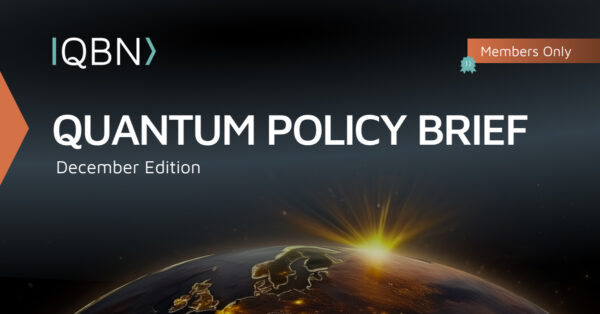
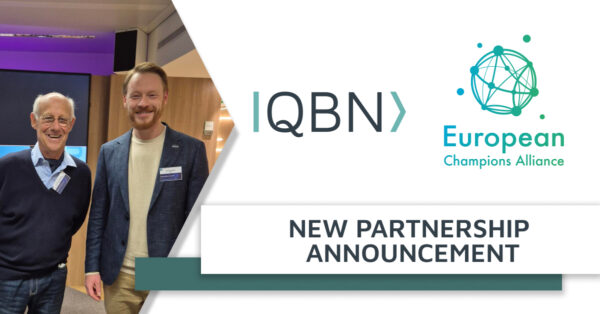
Munich, Paris, 11 December 2025 – Technological innovation is rapidly reshaping Europe’s industrial landscape, from advanced computing and cybersecurity to emerging areas such as quantum computing, quantum sensing and AI. Turning research breakthroughs into practical applications and these into economic impact requires collaboration across industry, research, investors, and public bodies. Recognising the need for a European Economy driven by deeptech champions and European values, the European Champion Alliance (ECA) and the Quantum Business Network (QBN) have joined forces to support a thriving and resilient deeptech ecosystem, leverage cross-sector collaborations between quantum, AI, cybersecurity and the wider deeptech sector, and enable European champions to scale and grow. Through this partnership, our members can connect with peers, explore opportunities and drive commercialisation and adoption across industries. It encourages the sharing of ideas, knowledge and experiences, and it facilitates the engagement in initiatives such as innovation challenges or joint discussions, helping to translate emerging technologies into practical applications. The collaboration also addresses wider strategic concerns, including cybersecurity and technological sovereignty, supporting a resilient and sustainable economy in Europe. By combining their complementary expertise and resources, ECA and QBN are committed to drive innovation, investment, and policy shaping to strengthen Europe’s position across future technologies, contributing to a resilient and competitive Europe. “At the European Champions Alliance, we are truly delighted to build this partnership with QBN. Quantum computing and quantum technologies represent one of the most strategic and promising fields of innovation for Europe. We firmly believe that strengthening cooperation across borders, connecting partners, and bringing together the key stakeholders of the quantum ecosystem is essential for Europe’s technological sovereignty and long-term competitiveness. This is why we are excited to join forces with QBN: together, we will support each other’s actions to develop a strong, collaborative, and vibrant European community of quantum players. We look forward to contributing to a shared momentum that accelerates innovation and reinforces Europe’s leadership in this critical domain.” Andrea Vaugan & Dominique Tessier, Co-Founders of the European Champions Alliance “QBN is thrilled to partner with the European Champions Alliance emphasising the commitment of the deeptech industry to drive economic impact of quantum technologies, AI, cybersecurity and beyond across Europe. Europe has all it takes to build deep technologies. Now, it is time to build a European market and accelerate the adoption. Together with ECA and our members and partners we are building the backbone of a secure, sovereign and competitive Europe. Collaboration of networks like QBN and ECA hold so much potential not only between their members, but also on network level. Let’s shape a connected, resilient and thriving Europe driven by quantum and deeptech innovation.” Johannes Verst, CEO of QBN About ECA The European Champions Alliance (ECA) is a not-for-profit initiative that supports European technological advancement. It brings together startups, SMEs, corporations, investors, and other stakeholders to foster collaboration, accelerate growth, and empower European companies. By connecting different actors across the tech ecosystem, ECA helps members access the resources, knowledge, and partnerships they need to scale. About QBN QBN is the global industry network and consultancy for quantum technologies promoting commercialization and collaboration, shaping policies and driving industry adoption. Founded in 2020, QBN, represents over 100 international members across the entire value chain, incl. world-leading startups, enterprises, RTOs, investors, and governmental organisations, developing and using quantum technologies, including quantum computing, quantum sensing, quantum communication, and quantum cybersecurity. QBN builds the industrial quantum powerhouse, driving national security, technological sovereignty, economic growth and a sustainable future.
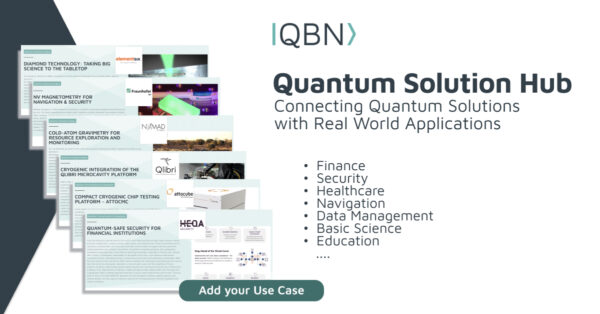
Munich, 10 Dec 2025 — QBN has launched the Quantum Solution Hub, a new platform providing organisations with direct access to applied quantum solutions that tackle real challenges in industries, research and education. The Hub consolidates practical examples from across the QBN network into one trusted reference point, giving end-users clear visibility into what quantum technologies can deliver today. It includes use cases spanning the quantum spectrum—from quantum computing and simulation, quantum communication and cybersecurity, quantum sensing and imaging, to enabling technologies such as diamond, photonics and cryogenics. Enterprises can now thoroughly explore and evaluate concrete quantum-enabled solutions relevant to their sector, from improving security and healthcare diagnostics to modernising data management and navigation capabilities. While quantum research in Europe is strong, practical examples are often hard to find, limiting adoption and slowing private investment. The Hub brings these solutions together, while offering insight into how leading organisations are applying quantum in practice, providing lessons that can inform strategy, accelerate adoption, and help enterprises position themselves ahead in this rapidly evolving market. “Europe has world-class research and a strong landscape of deep-tech innovators, but enterprises often struggle to see where quantum technologies already solve concrete problems and why they matter for their business. The Quantum Solution Hub gives end-users clear visibility into real-world applications, and shows how these technologies can address operational, security, or performance challenges in a practical way. By providing transparent, relatable examples, the Hub enables organisations to move from general curiosity to informed decision-making grounded in measurable outcomes, helping them assess the relevance and impact of quantum solutions for their specific needs,” said Haissam Hanafi, Quantum Technology Manager at QBN. Explore The Quantum Solution Hub: QBN › Use Cases Clearly, quantum technologies are no longer confined to research labs. Enterprises across sectors are already embedding quantum solutions into their operations, gaining tangible advantages and setting new industry standards. For organisations yet to begin their quantum journey, now is the moment to explore, adopt, and develop an approach that positions them at the forefront of this transformative technology. Contact us today to start shaping your tailored quantum strategy.





Bringing together end-users and developers with suppliers and integrators in a trust-based environment creates the perfect foundation for valuable business and collaboration opportunities

Bringing together end-users and developers with suppliers and integrators in a trust-based environment creates the perfect foundation for valuable business and collaboration opportunities